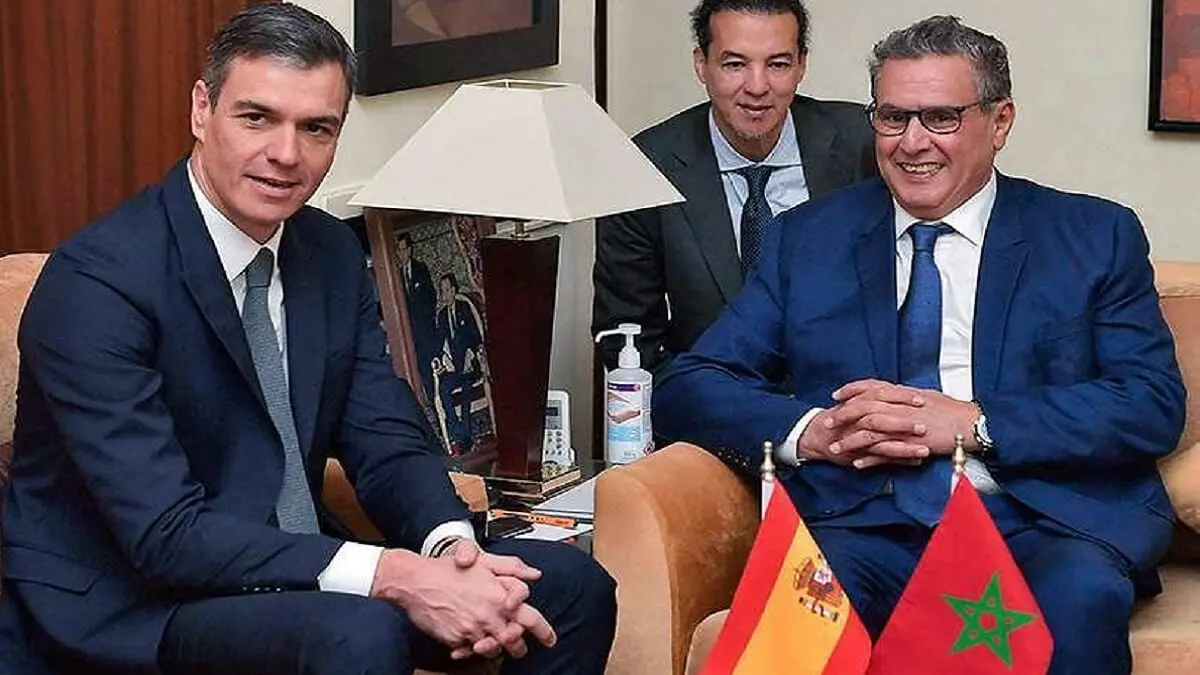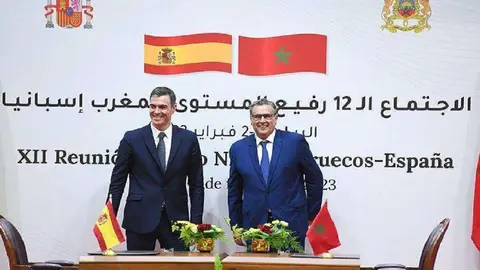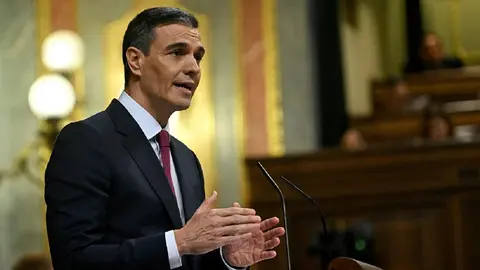Bilateral treaties, cornerstones of a complex Spanish-Moroccan neighbourhood

This difficulty is even more accentuated when it involves two states belonging to two different cultures and civilisations, separate geographical areas and unequal geopolitical spaces; and even more so when their relations are rooted in the remotest part of history, with its constant cooperation, misunderstandings, tensions, tensions, distensions and collective apprehensions.
This is the case of bilateral relations between Morocco and Spain, the study of which has given rise to a rich and inexhaustible bibliography and documentation, as they constitute an original and suggestive model of bilateral relations, and because the stability of the Strait of Gibraltar, an area of great geostrategic value at the international level, depends to a large extent on the state, course and development of their bilateral cooperation relations,
Despite the permanent differences, frictions and vicissitudes arising from the neighbourhood, Morocco and Spain have never turned their backs on each other. There have been times when they have looked at each other sideways, times when they have taken pauses for reflection and times when they have come into conflict, but at no time has there been indifference or a total rupture between the two. The small gap of sea that cuts across the natural geographical unity between the two southern and northern shores of the western Mediterranean has never been an obstacle to their human contacts, first, political, then diplomatic, economic and strategic, more recently.
All the civilisations that have passed through one of the two areas (north or south) have wanted to extend their dominion and influence to the other shore, from the Tartessians, Greeks, Carthaginians, Romans, Vandals, Byzantines and Arabs.
As relations between Morocco and Spain progressed over time, they became more mature, while the authorities in both countries realised that the conflict was not in favour of either side and that they were therefore obliged to find good formulas, better methods and the most effective mechanisms to resolve their differences and reconcile their interests.
One of these has consisted of diplomatic action, by means of which the two states, Moroccan and Spanish, manage the potential for conflict underlying their relations, combined with their common interests and challenges, by means of constant dialogue and negotiation; since, apart from the many things that unite the two Moroccan and Spanish nations, it should be noted that some challenges and factors of tension still persist between the two neighbouring countries, which on more than one occasion have even clouded the atmosphere of their bilateral cooperation relations.
We are referring to problematic issues such as the delimitation of territorial waters, border control, territorial claims, emigration, drug trafficking, human trafficking, etc. which still require great efforts on both sides to define a well-founded, institutionalised, structured and focused bilateral cooperation policy, far from any instrumentalisation, stereotyping or stigmatisation of their contacts, and safe from the political ups and downs that slow down the pace of building a solid and unalterable neighbourhood in the face of the circumstances between the two sides.
Since the signing of the first Spanish-Moroccan Treaty of Friendship and Trade in 1767 between the Sultan of Morocco, Sidi Mohamed Ben Abdellah, and the King of Spain, Carlos III, which led, among other provisions, to the creation of the first Spanish Consulate in Morocco, the two countries have not stopped trying to resolve their differences through diplomatic channels, signing, as a result, a large number of diplomatic documents in the form of bilateral international treaties.
Thanks to these treaties, Morocco and Spain have been able to jointly address issues of common interest and delimit their areas of bilateral cooperation, in order to channel their relations along the paths of peace and harmony and avoid confrontation.
Depending on the balance of power and the historical context in which they were concluded, the Spanish-Moroccan treaties prior to Morocco's independence in 1956 favoured the more powerful state in a position of strength, which at that time was Spain. Through a series of peace treaties, Spain came to impose harsh conditions on Morocco that preserved its interests, which were intended to guarantee Moroccan recognition of Spanish sovereignty over Ceuta and Melilla and other occupied presidios, as well as peace in those presidios. This dynamic was to change drastically after Morocco regained its independence and full sovereignty in 1956.
Since the signing of the ‘Joint Spanish-Moroccan Declaration’ in Madrid on 7 April 1956, which ended the Spanish Protectorate in the northern part of Morocco, Morocco has sought to impose a new logic on the negotiation and signing of new bilateral treaties with Spain, always on the basis of its sovereign statehood and the principles of equality and mutual respect. The objectives were readjusted to regional and international situations and circumstances and to the challenges faced by the two nations, giving their relations great dynamism and originality.
Despite all the diplomatic efforts made by the authorities of the two Moroccan and Spanish states, their relations throughout these years (1956-2023) have not been free of controversy and friction, as on some occasions they have come close to weapons, due to some mismanagement of their differences regarding certain conflictive issues, as was the case of the crisis on the island of Tora (Perejil) in the summer of 2021. Nevertheless, in the most complicated and tense situations, the two states were able to overcome their differences to ensure peace in this strategic area that both countries occupy. This is thanks to continuous dialogue and long negotiation processes that reflect a strong will for peace, cooperation and good neighbourliness on both sides.
Geopolitics requires Morocco and Spain to be accomplices in the arduous task of peaceful coexistence, as any existence without bilateral commitments would be an ordeal for both parties and a real danger for the region.
How, then, can the problematic aspect of this neighbourhood be softened and coexistence based on lasting regional stability be guaranteed, if not through efficient diplomatic action? In this sense, the bilateral Spanish-Moroccan international treaties are the best expression of a proven will for peaceful coexistence, understanding and cooperation, and a valuable instrument for establishing the principles, values, goals and limits of this bilateral cooperation within the framework of a neighbourhood that is not free of acrimony.
In this period between 1956 and 2023, Morocco and Spain have signed a whole range of bilateral treaties, including conventions, agreements, joint declarations, protocols, exchanges and memoranda, covering very heterogeneous areas of their bilateral cooperation relations, the study of which could help, above all, to understand the peculiarities, general features, evolution and state of affairs of relations between the two countries and, therefore, clarify the common issues that have most concerned the two countries and how they are managed.
These are documents which, drop by drop, have contributed substantially to the construction of a problematic but strong neighbourhood, and which now make it possible to determine with some clarity the different situations that Spanish-Moroccan relations have gone through until reaching the current situation of entente, great stability, concord, a Strategic Association and Partnership, culminating in the Joint Declaration of 7 April 2022, and the very promising joint candidacy to organise the 2030 football World Cup.
Abdelmounim AOULAD ABDELKRIM
(Doctor specialising in Spanish-Moroccan relations)
malammi@hotmail.com



